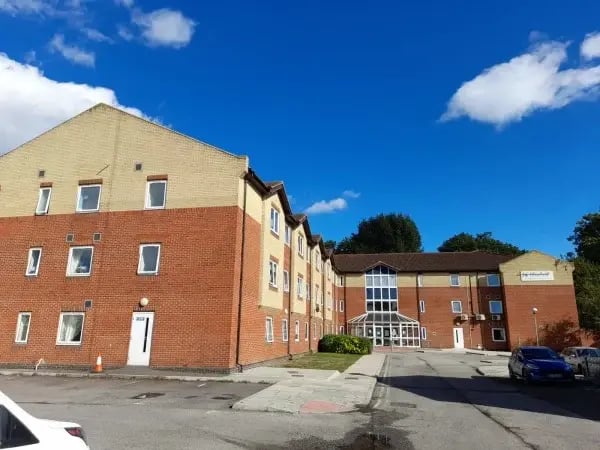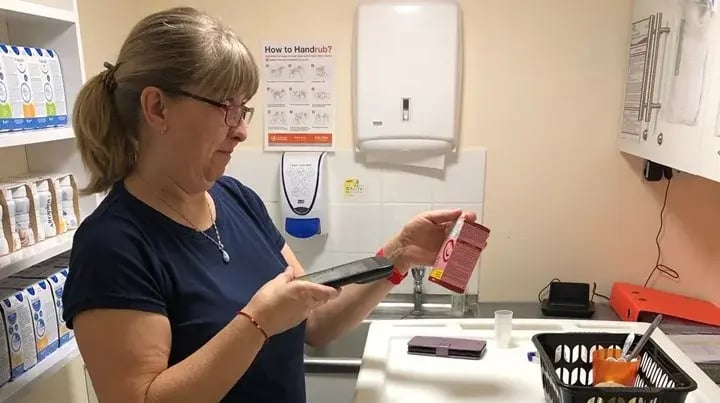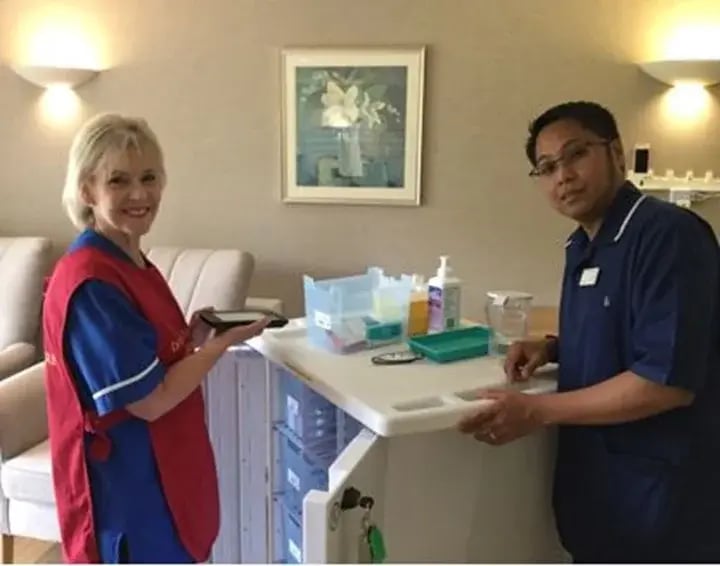What are the best practices to help you achieve greater medicine management in your care home?

It is common for many older people living in care homes to be taking several medications at a time, and as a result the increase in likelihood of medication errors taking place at any point in the process – whether it’s at the point of prescribing, dispensing, administering or monitoring – are increased.
This is why it’s crucial for care homes to have a process for medication management in place that does everything possible to avoid medication errors at any point in the process. People living in care homes are among the most vulnerable members of society and, especially if they are suffering from conditions such as dementia, rely heavily on care staff to ensure the medications they are taking adhere to the ‘five rights’ - right medication, right dose, right resident, right time, right route.
Care staff should always ensure that residents are involved in the process of their medicines but ultimately, everyone working within a care home setting needs to ensure that they have the best processes in place to avoid errors and ensure smooth and safe medicine management, accurate medication administration and efficiency in managing medications. So, we’re looking at the best practices care homes need to consider.
What are the best practices for medicine management in care homes?
Compliance with regulations
Care settings must adhere to regulations around medicines management. For example, Standard 4 of the CQC’s guidance for providers asks the question: “How does the provider ensure the proper and safe use of medicines?” and evaluates care homes in areas such as:
- Having relevant policies, procedures and training in place for medicines management
- Ensuring people receive their medicines as intended and that this is recorded appropriately
- The process of medicines management – ordering, transporting, storing and safe disposal
- Covert administration of medicines, if necessary, that are in line with the Mental Capacity Act 2005
- Safeguarding against the inappropriate or excess use of medicines to control people’s behaviour
- Assessing the level of support needed for people to take their medication
- How a care provider engages with other healthcare professionals in relation to medication reviews
- Keeping accurate, up-to-date information about medication needs when moving between care settings
Not only do care providers need to ensure that they have robust practices and procedures in place for safe and efficient medicines management, but they need to be able to clearly evidence it for regulators such as the CQC, The Care Inspectorate or the Healthcare Inspectorate Wales. (Read more here about our checklist for CQC compliance with regards to medications).
This is where record keeping for medicines management plays a crucial role; at one time this was mostly done with paper MAR charts, but relying on paper records often meant that records were out of date, illegible, incomplete or inaccurate – and sometimes even all the above. In recent years, more and more care providers are opting for eMAR systems like ATLAS eMAR because they not only provide a far higher level of safety, accuracy and efficiency for medicines management but the data that they gather allows care providers to more easily and accurately evidence compliance with regulations. (Read here for how ATLAS eMAR helps achieve compliance with CQC regulations around medicines).
Have a system for medication administration in place
As stated above, people living in care homes rely heavily on those caring for them to administer their medications safely and accurately, so it’s imperative that a system is in place that allows this to happen. Accurate and efficient medicines management procedures ensure that medications are administered with as little room for error as possible.
A streamlined system should include things like making sure to check each resident’s medical record for allergies when being prescribed a new medication. Strong protocols need to be in place to ensure that staff know what to do when adverse side effects take place because of, for example, unknown allergies. It should also include preparing medications for one resident at a time to make sure confusion doesn’t occur during a medication round. To ensure safety and accuracy, staff should also administer the medication before recording it, and for any over-the-counter pain medication, staff need to implicitly ask the resident if they are in pain rather than just assuming one way or the other.
If possible, care home staff can even implement a no-disturb zone for medication administration or during the process of preparing the medication. This would ensure that staff have a quiet area to concentrate on carrying out medication administration tasks without interruption. Some care homes have even been known to employ high-vis jackets for those staff in the middle of administering medications to give a visual sign that they must not be interrupted.
The easiest way to ensure safe and efficient medication administration rounds is by investing in an eMAR system like ATLAS eMAR, which uses the sophisticated barcode scanning feature on medications to inform staff of the right resident, the right dose and the right time. With ATLAS eMAR’s barcode scanning feature, staff can see exactly which resident needs the medication in question and at what time. Not only that, but there is a system of warnings that safeguard against giving the wrong medications to residents.
Maintaining stock and re-ordering of medicines
It could be argued that this is the most fundamental part of the whole medicines management process because if care settings do not have the level of oversight required to ensure stock does not run out or there is wasted stock due to over-ordering, then there could be severe consequences for the wellbeing of residents who might find themselves having to go without essential medications because stock has run out before more can arrive.
As well as prescribed medications, care settings also need to ensure they have a clear understanding of the use of PRN medications that won’t be accounted for in the prescribed medicines management processes but need to be accounted for to ensure the wellbeing of residents. Examples of PRN medicines include over-the-counter pain medication, topical creams, inhalers or other homely remedies.
The best way to safeguard against running out of stock and to keep a close handle on the level of PRN medicines is by taking advantage of ATLAS eMAR’s nine-day warning system. With ATLAS eMAR, the default setting for care is a nine-day warning before it is due to run out, which can be changed if they wish. This also prompts the staff to perform an action like ordering more stock and gives them plenty of time to ensure medication is ordered. You can learn more about how ATLAS eMAR helps with stock control here.
Analytics and management oversight
As a care provider, you need to ensure that there is a clear means by which you can see the whole picture of medicines management to understand what is working well and what needs to be improved. Not only this, but as a manager, you need to be able to see which care staff are doing the job correctly and who might be cutting corners to save on time – and if this is happening, you need to have the data to hand to see why this is the case and where things can be improved. It will also give you the chance to see who might require further training.
Moreover, you can pinpoint areas where processes need to be improved or streamlined. For example, if you have a 40 or 50 bed care home and you can see that the medication round is being completed in 10 minutes, then you can be certain that protocols are not being followed correctly or they could even be potting up.
But rather than just focusing on areas of improvement, this level of data can also be a great way to evidence to regulatory bodies that your methods are working. For example, if you have data that showcases the amount of medication errors that were avoided or if you have data that showcases a high percentage of barcode scanning success, administration success or safe prep time success (statistics which are all available with ATLAS Scorecard), then you have a full audit trail that not only helps with ensuring high standards in your care setting but also helps to evidence success.
Time is the single most valuable commodity in a care setting, and that is why, as a manager, you need to make sure you have sufficient oversight to pinpoint areas for improvement, rather than having to spend most of your time sifting through reports looking for errors.
Integrating with pharmacies
To ensure that you always have the right amount of stock for your care setting, you need to have smooth and transparent lines of communication between your care home and your chosen pharmacy. This means that every time there is a change of information in prescribed medications, you need to make sure that the pharmacy is alerted so that they don’t dispense the wrong medication or issue an old dosage.
Greater integration with your chosen pharmacy is also important because it means your care setting can avoid wasting time going back and forth with pharmacies chasing down prescriptions or re-ordering stock. The best way to ensure that you are fully integrated with your chosen pharmacy is by using ATLAS eMAR which enables transparent two-way integration via linked barcode technology.
For pharmacies, ATLAS Pharmacy can provide improved accuracy when dispensing medication to care homes and can save you time when processing prescriptions
Embracing technology
The best practices of stock management, safety and efficiency, pharmacy integration, regulatory compliance and management oversight that we have discussed already encompass the main aspects of ensuring outstanding results in medicines management in care homes, but to really maximise your results and to provide a quality of life and service to your residents, you need to embrace technology by investing in an eMAR system.
For many care providers who are already using technology to improve their digital care planning, then investing in an eMAR system to improve medicines management is the logical next step in their growth as a care service, and with ATLAS eMAR, you can be sure that along with you on that growth journey is a company that wants to be a true partner, rather than just a provider.
Below are just some of the ringing endorsements we have from care homes who have transformed their medicines management process using ATLAS eMAR

"Overall, I would definitely recommend the emar software because it minimises the time that it takes to manage medicines while improving best practice."
Mihaela Munteanu
Home Manager, Bluebell Place
“The system has received high praise from all members of the care team. Its effectiveness has been instrumental in streamlining and improving our medication management processes.
The system's features have proven valuable, making it an indispensable tool for our daily routines.”
Sarah Stuttle
Operations Director, Belvoir House (Rhencullen Care Group)
"When it comes to medicines management, ATLAS eMAR is so clever. Using ATLAS Scorecard helps empower and supervise staff to ensure we are doing the best we can to provide residents safe practice. No other technology has helped achieved this."
Lukasz Wawrzenczyk
Service Quality Manager, Kingsley Healthcare
"ATLAS eMAR allows us to free up our time to focus attention on residents who require one-to-one care"
Jasper Rabang
Register Nurse and Unit Lead, Marie Louise House Nursing Home
Improve medicines management with ATLAS eMAR
We want to ensure you have all the tools you need to achieve the very best outcomes as a care provider, so if you want to find out more about how ATLAS eMAR can help you to make that happen, why not click below to book a consultation and speak with one of our experts?
.png)

